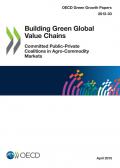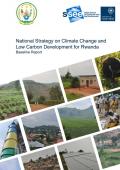The government as an entity is quite often the largest, single consumer of goods and services in developed as well as developing countries. Government procurement can be a powerful tool for positive environmental change by creating a market for environmental goods and services. At the same time, procurement policies will need to be designed and implemented in a manner that does not discriminate against trading partners. What sort of space is available in the context of existing trade-rules for governments to pursue proactive procurement policies for sustainable energy goods and services? Is there a need to review existing rules so as to enhance their effectiveness with regards to the objectives of strengthening markets for renewable energy? This paper, by Alan Herve and David Luff, sheds light on these questions and also explains how a possible Sustainable Energy Trade Agreement could spur reform while ensuring a level playing field in procurement markets for producers of sustainable energy goods and services worldwide.

ICTSD senior fellow and Professor Emeritus Thomas Brewer, addresses the issues associated with technology transfer used by firms, namely international direct investments, licensing, and trade in services and goods. The author makes a case for the creation of a new international institutional architecture built around a sustainable energy trade agreement (SETA), with a view to enhancing such transfer. The paper considers a wide range of related topics that need to be addressed in designing and negotiating a SETA, especially four key elements: subsidies, government procurement, standards and intellectual property rights.
This paper reviews the challenges and opportunities raised by international trade for developing countries considering a green growth strategy. A key concern is the effect of environmental policies on international competitiveness. For production-generated pollution, there is evidence that stringent environmental policy reduces some indicators of competitiveness, but the effect is small in most sectors. However, tightening up environmental standards is unlikely to reduce international competitiveness when pollution is generated by consumption. And where depletion of natural capital is a threat, effective environmental policy is an important component of a policy aimed at developing long-run international competitiveness. The effects of trade on environmental policy, the interaction between trade and technology transfer, and the interaction between trade and transboundary environmental problems are also reviewed. An emerging issue is the potential use of border taxes to curtail carbon leakage. The paper discusses some of the possible responses by developing countries.

This Baseline Report is the first step in the process of developing a National Strategy on Climate Change and Low Carbon Development for Rwanda. It provides a snapshot of the country today and the planned initiatives that will take it forward, placing it within the context of climate change. Though many opportunities are highlighted, the aim of the report is to provide the foundation for the next step where detailed analysis will take place and recommendations will be made. It includes an analysis of the following sectors: climate policy; economy, trade and industry; energy; mining; transport; cities and the built environment; agriculture; land; water and forestry.
This summary was prepared by Eldis.
